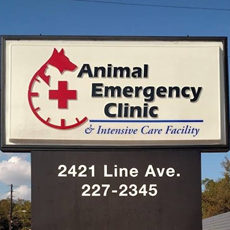
Diet
The Avian class is an overarching term that encompasses many types of birds. There are a large range from the smallest finches to the largest of macaws. That being said, their diet requirements vary greatly. An all seed diet can be detrimental in the wrong species and cause a large amount of health problems such as fatty liver disease. We would be happy to assist with diet consultations during appointments.
Wing Trims
In this clinic, we perform a technique called “Skinny Repeal” that is recommended for flight modifications. This is a non-painful procedure that trims the back side of the primary feathers on both wings in order to impede flight capability while still allowing the bird to respond to stimuli. It is built into a bird’s natural biology to fly in order to escape stressful or scary situations. The goal of the skinny repeal technique is to prevent long flights while not taking away their natural reflexes. This procedure is preformed safely while preserving the aesthetic appearance of your bird.
When done appropriately, a traditional wing trim can be non-painful, but there can be side effects. If the wings are trimmed too young, it can cause permanent defects. If the wrong feathers are trimmed, it can cause balancing issues. Most importantly trimming blood feathers can be detrimental. A blood feather being trimmed can be life threatening.
Nail Trims
Most birds need to have their nails trimmed regularly. However, the process can be detrimental to your bird if its nails are trimmed too short. We can take care of this procedure for you so that you do not have to worry about nicking the blood vessels inside the nails.
Perches with rough surfaces can help reduce the frequency of nail trimming, but do not use sandpaper perches. They do not wear down the nails and can cause skin problems.
Beak Trims
Beaks continue growing throughout birds’ lives. Although birds’ beaks usually wear evenly, some birds develop beak problems and require veterinary assistance. Trimming the bird’s beak incorrectly can cause the bird pain and may prevent it from eating, which is why it is recommend having the bird’s beak professionally trimmed. Do not attempt to trim your bird’s beak at home.
Please feel free to call us to discuss these maintenance options as well as any concerns you might have, or to set up an appointment
Enrichment and interaction
While birds are beautiful to have and look at, they truly are intelligent creatures! It is important to give them enrichment that stimulates their mind and keeps them out of trouble. Rotating toys, adding new toys, time outside the cage (in a safe environment), and spending time with your bird is all important to their wellbeing. It is important that interactions such as showing affection, cuddling, and other physical touching be avoided due to the risk of the bird becoming inappropriately attached to you in a sexualized manner. This can cause sexual frustration that leads to detrimental health complications such as regurgitation, cloacal prolapse, and egg binding.
Overall heath
It is recommended that your avian companion is seen once or twice a year for exams. This allows monitoring of your pet’s health and the ability to address any concerns you may have at the time.
Please contact us immediately if your bird develops any unusual symptoms, such as:
- Feather loss/ plucking or ruffled feathers
- Discharge from the eyes or nose
- Swelling of the eyes or nares
- Beak abnormalities
- Lethargy, inappetence, or regurgitation
- Wing droop, limping on limbs, inability to stand, or abnormal swelling of feet
- Coughing, sneezing, respiratory secretion, or trouble breathing
- Diarrhea, changes in stool, or blood from cloaca





